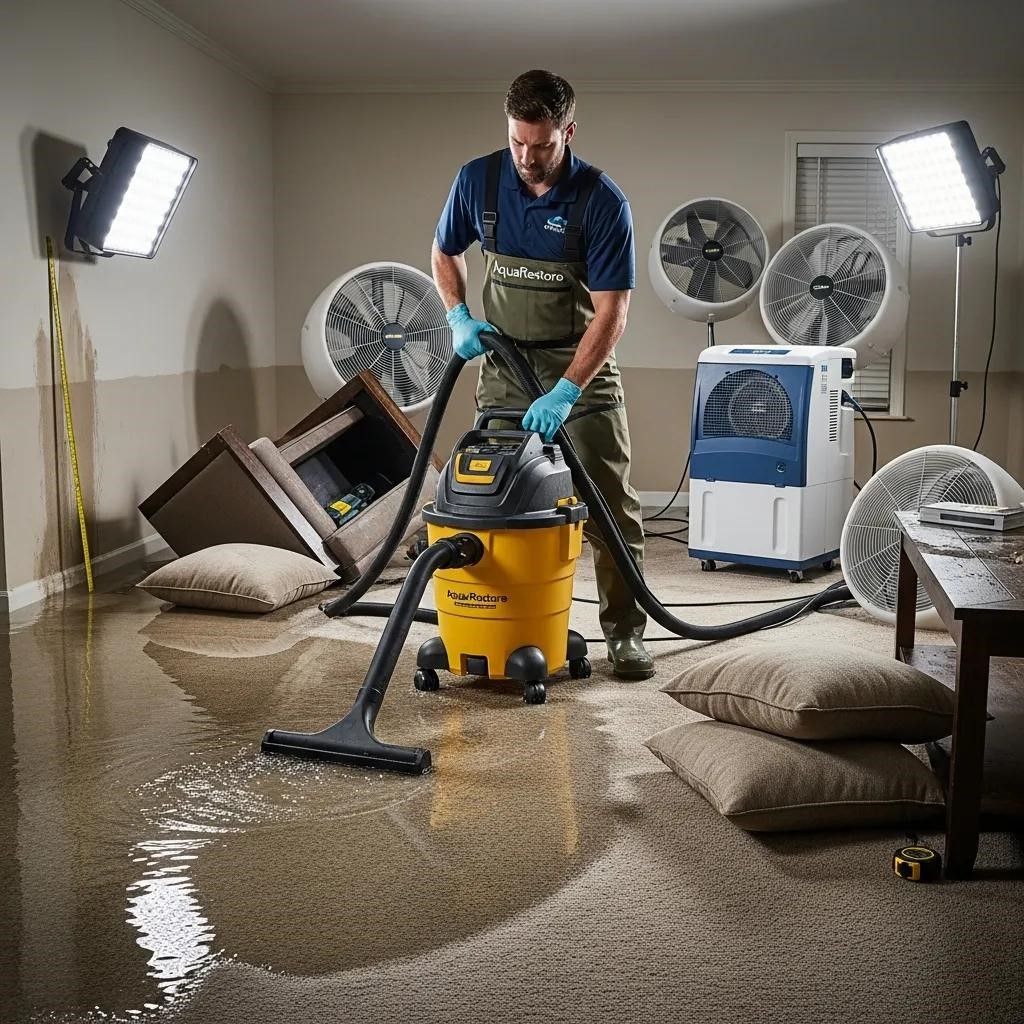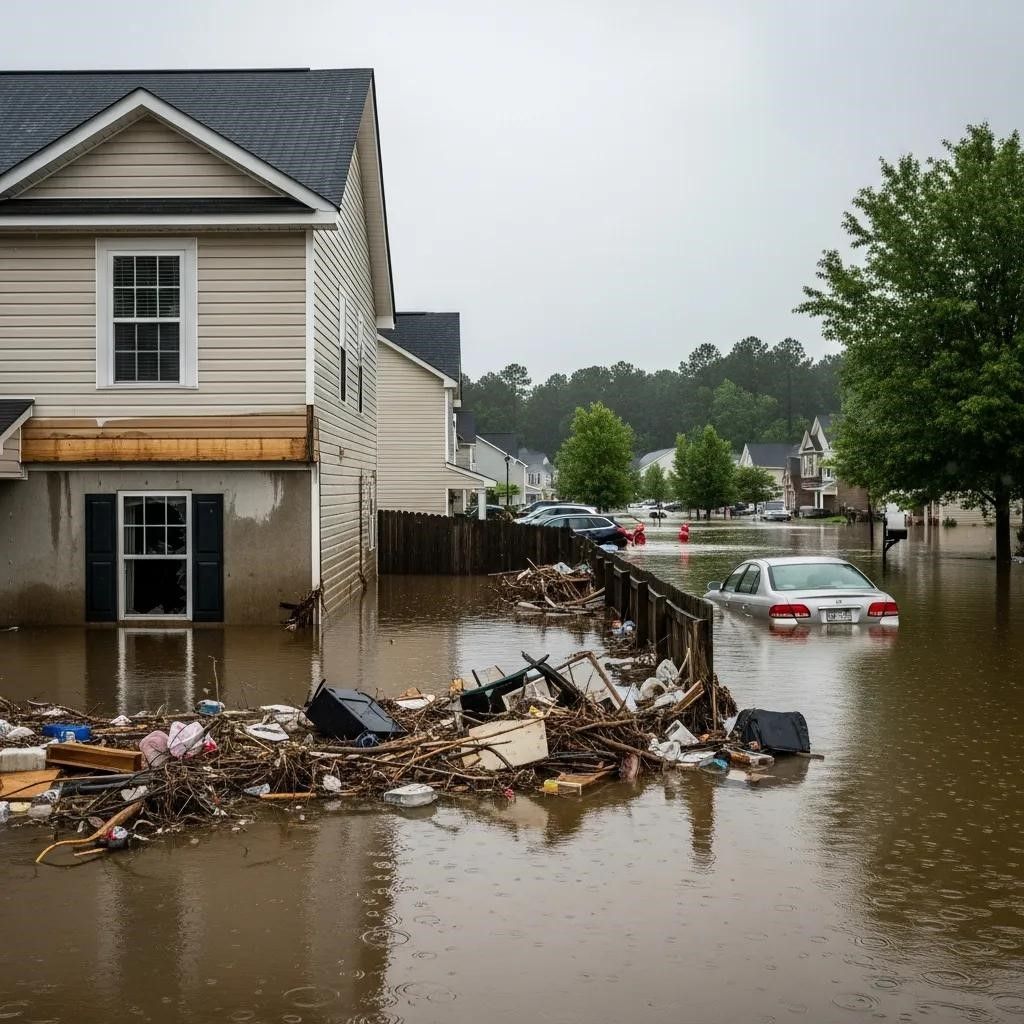Rock Hill Clay Soil Problems: Why Your Home Needs Special Water Damage Protection
Rock Hill Clay Soil Problems: Why Your Home Needs Special Water Damage Protection
Rock Hill homeowners face a unique challenge that many don't know about. The clay soil under your home creates special water damage risks. Our restoration experts see these problems every day in Rock Hill neighborhoods.
Understanding your soil helps protect your home. Clay soil acts differently than other types of dirt. It holds water longer and drains slowly. This can cause serious problems for your foundation and basement.
Why Rock Hill's Clay Soil Creates Water Problems
Clay soil is common throughout Rock Hill. Cherry Park, Ebenezer, India Hook, and downtown areas all sit on clay. This soil type is like a sponge that doesn't want to let go of water.
When it rains, clay soil soaks up water slowly. But once it's full, the soil can't hold any more. Extra water has nowhere to go except around your foundation. This creates flooding and seepage problems.
Clay soil also expands when wet and shrinks when dry. This movement can crack foundations. Small cracks let water into basements and crawlspaces. Over time, these cracks get bigger.
Rock Hill Neighborhoods Most Affected
Cherry Park: Many homes built on clay soil experience basement flooding during heavy rains. Older drainage systems struggle with clay's poor drainage.
Ebenezer: Historic homes in this area often have foundation issues from clay soil movement. The older construction wasn't designed for clay's expansion and contraction.
India Hook: Residential areas here see water backup during storms. Clay soil overwhelms drainage systems faster than other soil types.
Downtown Rock Hill: Commercial and residential buildings face unique challenges. Pavement and clay soil create more runoff with fewer places for water to go.
Warning Signs of Clay Soil Water Damage
Smart Rock Hill homeowners watch for these warning signs:
Foundation Problems: Look for new cracks in your foundation walls. Check for gaps around windows and doors. Watch for doors and windows that stick or won't close properly.
Basement Issues: Musty smells often mean moisture problems. Water stains on walls show where water has been. White chalky deposits on walls indicate water damage.
Yard Changes: Soft spots in your yard after rain show poor drainage. Water pooling against your foundation is a red flag. Trees or plants dying near your house might indicate soil problems.
Indoor Signs: Humidity that won't go away even with air conditioning. Mold growth in basements or lower levels. Peeling paint or wallpaper on lower walls.
How We Solve Rock Hill's Clay Soil Challenges
Our Rock Hill experience teaches us what works with clay soil. We don't fight the clay - we work with it.
Proper Drainage Systems: We install drainage that moves water away from your foundation. French drains work well with clay soil. Sump pumps handle water that does get in.
Foundation Waterproofing: We seal foundation cracks before they become big problems. Special coatings work better with clay soil movement. Interior and exterior waterproofing protects your home.
Soil Management: We grade soil properly to direct water away from your house. Strategic landscaping helps manage clay soil drainage. Rain gardens can handle excess water naturally.
Prevention is Key for Rock Hill Homes
Don't wait for major problems. Clay soil damage gets worse over time. Small fixes now prevent expensive repairs later.
Regular inspections catch problems early. We know what to look for in Rock Hill homes. Our team understands how clay soil affects different types of construction.
Proper maintenance makes a huge difference. Keep gutters clean and directed away from your house. Fix small foundation cracks quickly. Maintain proper grading around your foundation.
Rock Hill Clay Soil FAQs
Why do Rock Hill homes have more water problems?
Rock Hill sits on clay soil. Clay soil doesn't drain water well. When it rains hard, water sits around your home's foundation.
What areas of Rock Hill are most affected?
Cherry Park, Ebenezer, and India Hook see the most clay soil issues. These neighborhoods need special attention during heavy rains.
How can I tell if clay soil is affecting my home?
Look for cracks in your foundation. Check for water in your basement after rain. Feel for soft spots in your yard.
Can you prevent clay soil water damage?
Yes. We install drainage systems and waterproofing. Regular maintenance helps catch problems early.
How much does clay soil foundation repair cost?
Every home is different. We offer free inspections. Most homeowners spend less than they expect when they catch problems early.
Trust Rock Hill's Clay Soil Experts
Our team knows Rock Hill's unique challenges. We've worked in Cherry Park's older homes and Ebenezer's historic properties. We understand India Hook's drainage issues and downtown's complex water management needs.
Clay soil doesn't have to damage your home. With the right approach, you can protect your investment and keep your family safe and dry.
Contact us for a free clay soil assessment. We'll show you how to work with your soil, not against it.
Learn more about our Rock Hill water damage services and our specialized basement flooding solutions.
For comprehensive water damage restoration and waterproofing services , plus expert help with crawlspace issues caused by clay soil.
You might also like
Official Carolina Pro Restoration Blog





